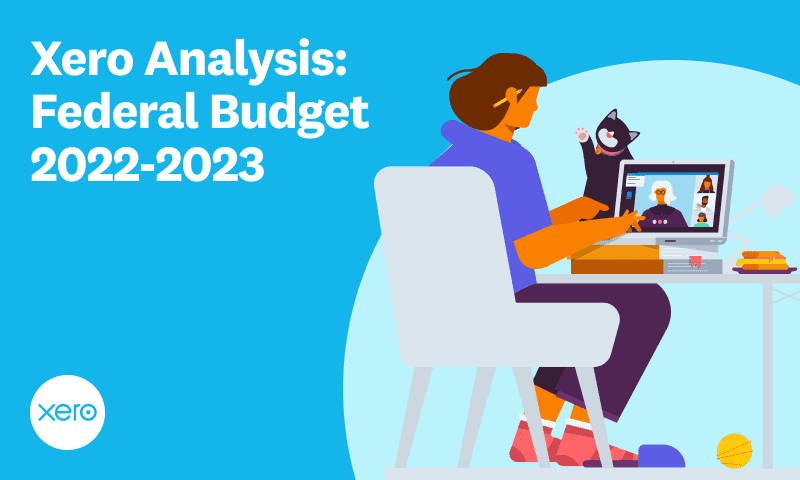Xero to acquire Melio: A payments game-changer for small businesses across the US




The 2022/23 Budget is a classic pre-election document, seeking to settle Australian’s nerves around the current cost of living. There are also a raft of new announcements that directly benefit small businesses and encourage investment in employee skills and business digitalisation.
Looking at the Budget from a macroeconomic perspective, it is expected to be as expansionary in 2022/23 as it was in 2021/22. The projected deficit of $78.0 billion in 2022/23 is almost identical to the $79.8 billion deficit expected in 2021/22. In short, there is little difference in the Government’s impact on the economy between the year immediately after the 2020 global recession (2021/22) and the coming fiscal year.
There is a risk that maintaining such an expansionary budget position, in an environment of rising inflation pressures, could result in the Reserve Bank of Australia raising the official cash rate sooner than it had anticipated.
The recent rising price of fuel, which is resulting in higher prices of everything from groceries to building supplies, is a hot topic across Australia. The latest Westpac Consumer Confidence Index highlights how damaging concerns about cost of living, potentially higher interest rates and the general prevalence of bad news in the world is for household confidence levels currently. The Index fell to 96.6 points in March from 100.8 in February – this is the lowest confidence reading since September 2020.
The Budget seeks to ease some of these concerns and boost consumer confidence with several temporary measures, most notably:
These three announcements alone will cost $8.6 billion in the next six months.
The economic forecast that will attract the most attention is the wages data, which is forecast to rise 3.25% in 2022/23 and 3.25% in 2023/24. This is a slightly faster forecast than the Reserve Bank of Australia, which is expecting wages growth to not reach 3.25% until mid-2024.
New policies that will directly benefit small businesses include:
One long standing policy that has been repeatedly extended is the instant asset depreciation program. This was not extended in the Budget and could end on 30 June 2023.
Overall, this Budget is designed to provide relief from cost of living pressures and minimise ‘losers’ from any policy decisions. Attention will now turn to next week’s Reserve Bank Board meeting to understand how this Budget may impact the Bank’s thinking around interest rates. Then the focus will be firmly on the timing of the federal election, when we will next hear from Treasury in its Pre-Election Fiscal Outlook.
1 Calculated using national average price of unleaded 95 petrol published on drive.com.au.
Share this article
[addtoany]Find out why 4.2 million subscribers locally and across the world trust Xero with their numbers.
Try Xero for freeYou're on our Global website. Change your region to see information and pricing for another location.